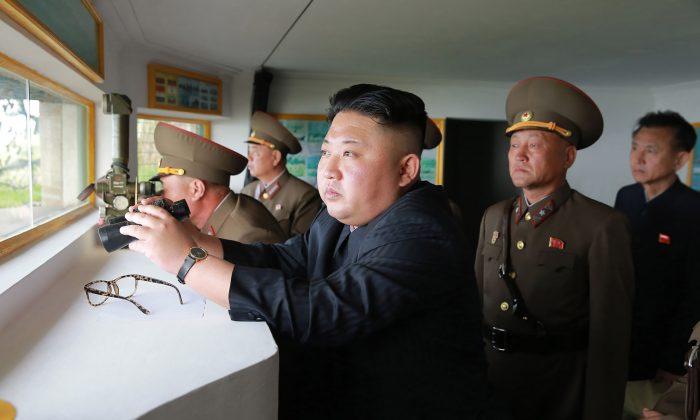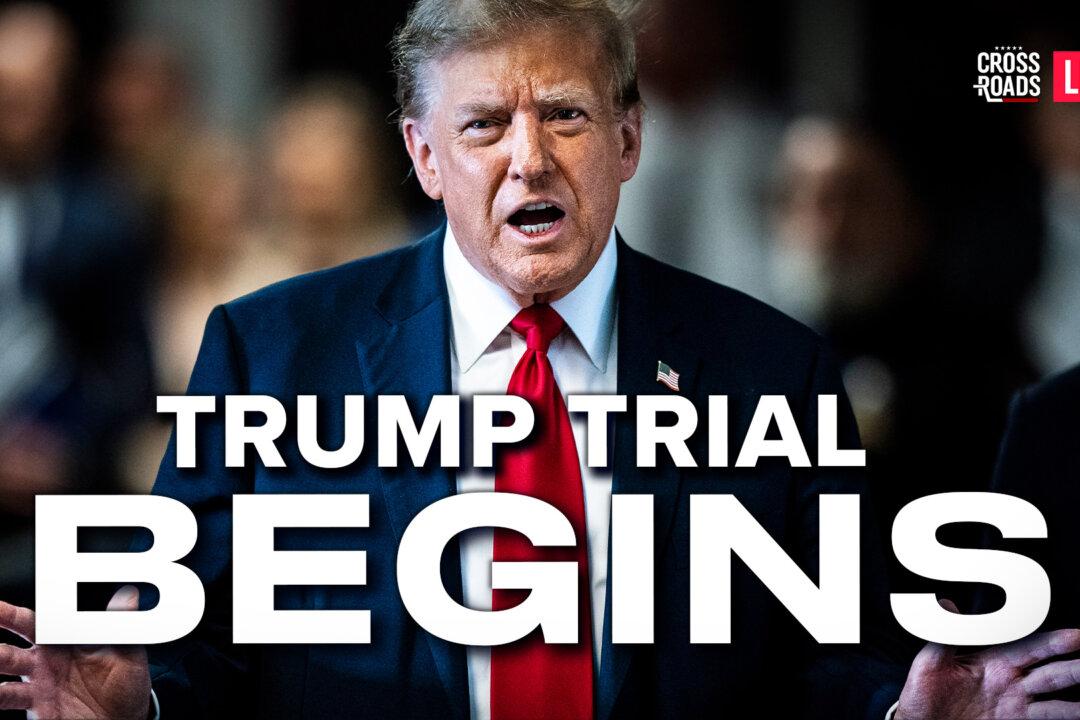The North Korean regime is continuing its development of nuclear weapons and ballistic missiles, as well as its threats against the United States and U.S. allies. President Donald Trump said that the problem is at a point “where it’s very, very far advanced,” and that “we can’t let this go on.”
Trump gave his comments during an Oct. 11 interview with Sean Hannity on Fox News, noting that the problem with North Korea “should have been handled 25 years ago,” but was allowed to continue under previous administrations. With North Korea now claiming it is on the brink of developing nuclear missiles that could reach the United States, “something has to be done,” Trump said.
While the U.S. military is prepared to defend itself and its allies from North Korea, the current strategy is based on diplomacy—not with North Korea directly, but rather through its main supporter, China.
And so far, the strategy appears to be working.

The effects of this were soon apparent.
China’s central bank, the People’s Bank of China, told the country’s banks to follow the U.N. sanctions on North Korea by denying services to new North Korean customers and winding down loans for existing North Korean customers.
Then, the People’s Bank gave North Korean joint ventures and companies 120 days to close down. The news was reported by The Korea Herald on Sept. 28, which cited the Chinese regime’s Commerce Ministry.

The Chinese regime is one of North Korea’s main defenders and a key supplier of goods and oil. According to energy news website Oilprice.com, close to 90 percent of North Korea’s documented crude oil supply comes from China. This relationship has been unstable recently, however.
Officials in the faction loyal to former Chinese Communist Party leader Jiang Zemin have had close relations with North Korea. Jiang himself was photographed giving a hug to Kim Jong Il, the father of current North Korean leader Kim Jong Un.
Jiang’s faction has opposed current Chinese leader Xi Jinping, and relations between China and North Korea have been caught up in the factional infighting.
Xi has had relatively cold relations with North Korea. And it is Xi’s faction that has agreed to enforce the U.N. sanctions.
Tillerson had similar reports after visiting China, and said during a joint press conference with U.S. Ambassador to China Terry Branstad on Sept. 30 that “the Chinese are also telling us that it’s having an effect, and they have a pretty close-up view of it.”

Trump acknowledged China’s role during his recent interview on Sean Hannity, yet maintained cautious optimism. “Now China’s been very helpful, I think,” he said. “I think. Who knows? They seem to be very helpful.
“They cut off banking to North Korea. That’s something they have never done before. They have cut way down on the fuel, a lot of other things. We’re going to see what happens,” he said, adding that in regard to North Korea’s nuclear programs, “We can’t allow this to happen. This should have been taken care of long ago.”


![[LIVE Q&A 04/18 at 10:30AM ET] 20 States Want to Allow Assisted Suicide](/_next/image?url=https%3A%2F%2Fimg.theepochtimes.com%2Fassets%2Fuploads%2F2024%2F04%2F17%2Fid5631798-CR-TN_REC_0418-1080x720.jpg&w=1200&q=75)



Friends Read Free